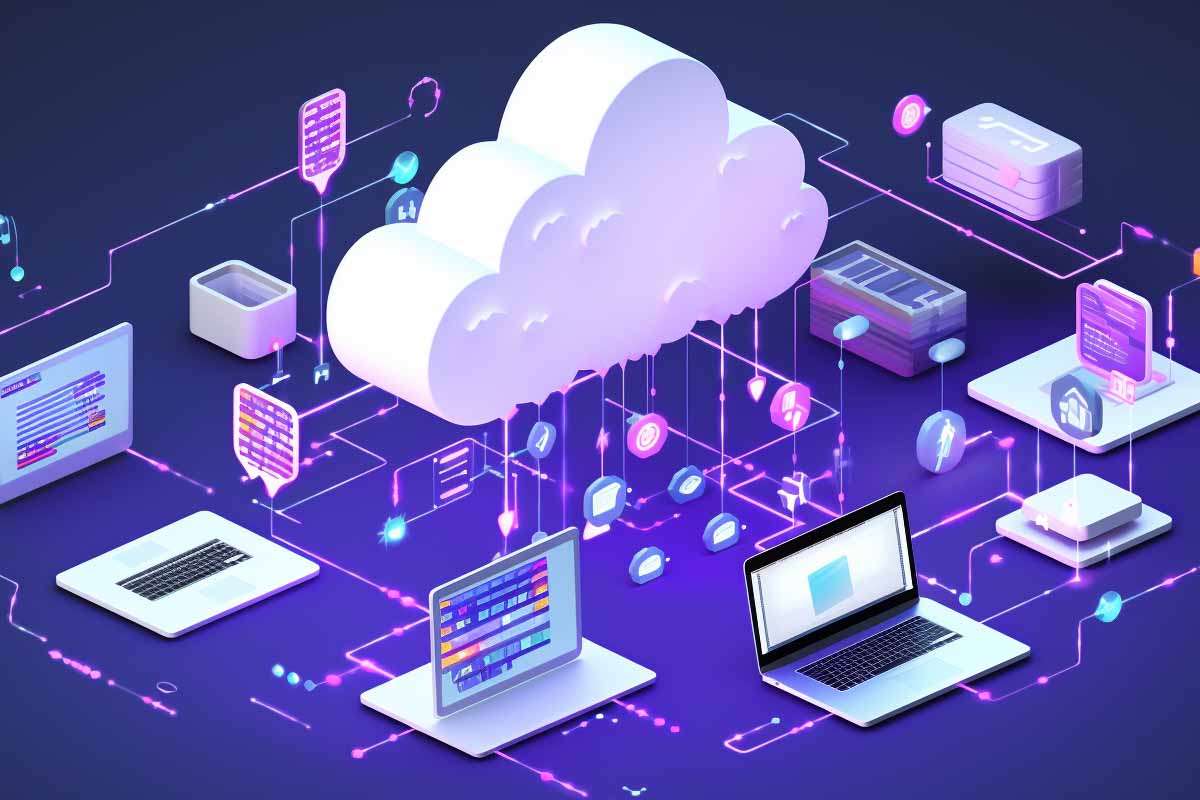The Rise of DevOps: More than Just a Buzzword
DevOps, a blend of development and operations, represents a cultural revolution in the IT career industry. It’s not just a fleeting trend; it’s a strategic approach reshaping how software is developed, deployed, and managed. This fusion aims at enhancing collaboration, speeding up delivery processes, and ensuring a seamless software lifecycle.
The DevOps Masters Program: A Launchpad for Aspiring DevOps Engineers
Embarking on a DevOps Masters Program is like enrolling in a transformative journey. The course goes beyond traditional learning, focusing on practical aspects like Continuous Integration/Continuous Delivery (CI/CD), a vital component in the modern DevOps toolkit. Students are introduced to cutting-edge tools like Puppet, Nagios, Chef, Docker, Git, and Jenkins. These tools are not just teaching aids; they are the instruments that shape a proficient DevOps engineer. The program aligns with the needs of a rapidly evolving industry, preparing students for roles like DevOps Engineer, Automation Expert, and Release Manager.

Google DevOps Engineer Career Path
Targeting the Google Cloud Platform (GPC), this DevOps Engineer training series provides students with both broad and in-depth content designed to ensure you succeed in the role of a Google DevOps Engineer.
GitOps: Steering the Future of Infrastructure Management
In the realm of DevOps, GitOps emerges as a groundbreaking approach, blending the power of Git with Kubernetes. This combination leads to a more efficient, transparent, and scalable way to manage infrastructure and deployment. GitOps stands as a testament to the evolving nature of DevOps, where code not only drives software development but also governs the very infrastructure it runs on. The approach is indicative of the industry’s shift towards more agile, responsive, and robust systems, where infrastructure management becomes as dynamic and iterative as software development itself.
By weaving these elements seamlessly into the article, it not only enriches the content with valuable insights but also ensures a natural integration of relevant SEO keywords, enhancing the article’s visibility and engagement.
The Dynamic Duo: AIOps and MLOps – Revolutionizing IT Operations
The integration of AI and Machine Learning in DevOps has given birth to AIOps and MLOps, transforming how IT operations and processes are managed. AIOps serves as an intelligent layer in IT operations, automating and enhancing system performance and reliability. It’s like having a Sherlock Holmes in your IT department, solving complex problems with ease. MLOps, on the other hand, brings a methodical approach to machine learning, streamlining the development lifecycle of AI and ML models. Together, these technologies are pivotal in advancing the capabilities of DevOps IT career, offering solutions that are not only efficient but also forward-thinking.
DevSecOps: Fortifying the Digital Landscape
In the world of DevOps, security is not just a feature; it’s a necessity. This is where DevSecOps comes into play, merging security practices with DevOps processes. It ensures that security is embedded in the software development lifecycle from the get-go. Think of DevSecOps as the guardian of the digital realm, integrating essential security measures like automated code analysis and vulnerability assessments. This proactive approach to security helps in mitigating risks early in the development process, making it an indispensable part of the DevOps culture.
FinOps: The Strategic Confluence of Finance and DevOps
FinOps represents the intersection of finance and DevOps, focusing on optimizing cloud costs and resource utilization. It’s like a savvy CFO for your cloud infrastructure, ensuring you get the most bang for your buck. FinOps principles help organizations balance cost, speed, and quality, enabling them to make informed decisions about their cloud investments. By integrating financial accountability into the DevOps process, FinOps ensures that resources are used efficiently, aligning spending with business outcomes.

Google DevOps Engineer Career Path
Targeting the Google Cloud Platform (GPC), this DevOps Engineer training series provides students with both broad and in-depth content designed to ensure you succeed in the role of a Google DevOps Engineer.
DataOps: The New Frontier in Data Management
DataOps is redefining data management by harmonizing data, people, and processes. It’s not just about managing data; it’s about enabling data agility and ensuring data quality throughout the analytics lifecycle. In the context of DevOps, DataOps plays a crucial role by enhancing data accessibility and streamlining data workflows. This approach ensures that data is not only available but also reliable and actionable, supporting faster and more informed decision-making across organizations. DataOps thus emerges as a critical component in the broader DevOps ecosystem, driving efficiency and innovation in data-driven environments.
Chaos Engineering: Preparing for the Inevitable
Chaos engineering is a proactive approach to software reliability, akin to a firefighter training for the most intense scenarios. By deliberately injecting failure into systems, chaos engineering tests the robustness of software in a controlled environment. This process helps in uncovering hidden issues, ensuring that applications can withstand turbulent conditions. Embracing chaos engineering means preparing for the unexpected, making it an essential practice for any organization that prioritizes resilience and reliability in their operations.
Kubernetes and Docker: Pioneers in Containerization
In the world of container orchestration, Kubernetes and Docker stand as pivotal technologies. Kubernetes orchestrates the deployment, scaling, and operation of application containers across clusters of hosts, providing the infrastructure to build a more flexible and scalable application environment. Docker, complementing Kubernetes, encapsulates applications into containers, making them portable and efficient. Together, they create a synergistic duo, streamlining development and deployment processes, and embodying the essence of modern containerization practices.
AWS DevOps Engineer Certification: Unlocking Cloud Mastery
The AWS DevOps Engineer Certification is more than just a credential for your IT career; it’s a testament to one’s proficiency in navigating the AWS cloud ecosystem. This certification is crucial for professionals aiming to master the art of deploying and managing applications on AWS. It endorses a comprehensive understanding of AWS services and best practices, equipping individuals with the skills needed to optimize AWS resources. Achieving this certification is like obtaining a key to unlock numerous opportunities in the cloud domain, solidifying one’s standing as a skilled AWS DevOps professional.
Continuous Learning: Staying Ahead in the Evolving World of DevOps
In the dynamic landscape of DevOps, staying stagnant is not an option. Continuous learning is the fuel that drives DevOps professionals forward. With technologies and methodologies evolving at breakneck speeds, courses in Linux Fundamentals, Python Scripting, and advanced DevOps practices are essential to keep pace with the industry. These programs offer a deep dive into the latest tools and trends, ensuring that learners are not just keeping up but are ahead of the curve. This commitment to ongoing education is what sets apart a proficient DevOps professional from the rest.

Google DevOps Engineer Career Path
Targeting the Google Cloud Platform (GPC), this DevOps Engineer training series provides students with both broad and in-depth content designed to ensure you succeed in the role of a Google DevOps Engineer.
Wrapping Up: Embark on Your Journey to DevOps Mastery
The DevOps Masters Program is more than just a series of courses; it’s a transformative journey into the heart of modern IT operations. This program equips learners with the skills to tackle real-world challenges, enhancing their ability to collaborate effectively and automate complex processes. As you progress through this journey, you will discover that the world of DevOps is one of constant evolution and endless opportunities for growth. Embrace the journey with an open mind and a thirst for knowledge, and you will find that the path to DevOps mastery is as rewarding as it is enlightening.
Embarking on this DevOps Masters Program is not just about acquiring skills for your IT career; it’s about joining a community of forward-thinking professionals who are shaping the future of technology. Are you ready to be a part of this exciting world? The realm of DevOps, with its endless possibilities, awaits your exploration!
DevOps Masters Program FAQs
What is the DevOps Masters Program and who is it for?
The DevOps Masters Program is a comprehensive educational journey designed for individuals looking to deepen their understanding and skills in DevOps practices. It’s ideal for IT professionals, software developers, and system administrators seeking to enhance their expertise in DevOps methodologies.
How does the DevOps Masters Program prepare you for real-world IT challenges?
This program equips learners with practical knowledge in areas like Continuous Integration/Continuous Delivery (CI/CD), automation tools, and cloud technologies. It blends theoretical learning with hands-on experience, preparing students to tackle real-world IT challenges efficiently.
Are there prerequisites for enrolling in the DevOps Masters Program?
While a basic understanding of IT concepts and software development is beneficial, the DevOps Masters Program is structured to accommodate learners at different skill levels. Some courses might require foundational knowledge in programming or IT systems.
How long does it take to complete the DevOps Masters Program?
The duration of the DevOps Masters Program varies depending on the specific curriculum and the pace at which you choose to learn. Typically, it can take anywhere from a few months to a year to complete all the modules.
What career opportunities can arise after completing the DevOps Masters Program?
Graduates of the DevOps Masters Program often find opportunities as DevOps Engineers, Automation Specialists, Cloud Engineers, and IT Project Managers. The skills gained are in high demand across various industries, opening doors to diverse and rewarding career paths.

Google DevOps Engineer Career Path
Targeting the Google Cloud Platform (GPC), this DevOps Engineer training series provides students with both broad and in-depth content designed to ensure you succeed in the role of a Google DevOps Engineer.
You may also like:
DevOps Job Openings : Discover Companies Hiring DevOps Engineers and Capitalize on Emerging Opportunities 2024
DevOps Entry Level Jobs : Navigating Your First Step in the Tech Industry
DevOps Engineer Skills : Unveiling the Skills Needed for DevOps Engineers in the Modern IT Landscape
DevOps Activities : Insights into the Day-to-Day Life of a DevOps Engineer

























1 thought on “DevOps Masters Program : Navigating the Path to Master’s Degree in DevOps”
I believe this is among the most significant information for me. And i am glad reading your article. But wanna commentary on some general issues, The site style is ideal, the articles is truly excellent : D. Just right job, cheers